 W
WQueen Anne-Marie of Greece, RE is the former Queen of Greece as the wife of King Constantine II, who reigned from 1964 until 1973.
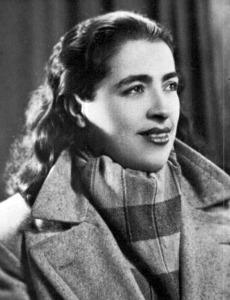 W
WSotiria Bellou was a Greek singer and performer of the rebetiko style of music. She was one of the most famous rebetisa of all, mentioned in many music guides, and a contributor to the 1984 British Documentary entitled Music of the Outsiders. On March 14, 2010, Alpha TV ranked Bellou the 22nd top-certified female artist in the nation's phonographic era.
 W
WEmmanouil Benakis was a Greek merchant and politician, considered a national benefactor of Greece.
 W
WNikolaos Christodoulou was a Greek infantry officer who rose to the rank of Major General.
 W
WConstantine II reigned as the King of Greece from 6 March 1964 until the abolition of the monarchy on 1 June 1973.
 W
WGerasimos Antonios Contomichalos was the most eminent business magnate in the Anglo-Egyptian Sudan and the greatest benefactor of the Greek community in Sudan. He wielded considerable political influence both in Sudan and Greece.
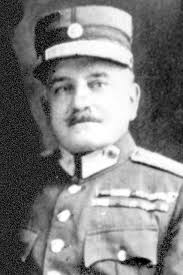 W
WDimosthenis Dialetis was a Greek soldier who rose to the rank of Lieutenant General.
 W
WKimon Digenis (1871–1945) was a Greek Army officer who reached the rank of Major General.
 W
WDemetrius Constantine Dounis, also known as D. C. Dounis, was an influential teacher of violin and string instrument technique, as well as violinist, violist, and mandolin player.
 W
WElisabeth of Romania was a princess of Romania and member of the House of Hohenzollern-Sigmaringen and by marriage Queen of Greece during 1922–1924.
 W
WAngelos Evert was a Greek police officer, most notable for serving as head of the Athens branch of the Cities Police during the Axis Occupation of Greece during World War II.
 W
WTevfik Fikret was the pseudonym of Mehmed Tevfik, an Ottoman educator and poet, who is considered the founder of the modern school of Turkish poetry.
 W
WAthanasios Frangou or Frangos was a Greek Army officer who reached the rank of Major General.
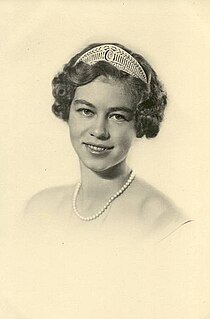 W
WFrederica of Hanover was Queen consort of Greece from 1947 until 1964 as the wife of King Paul, thereafter Queen mother.
 W
WPanagiotis Gargalidis was a Greek army general who fought in the Greco-Turkish War of 1897, the Balkan Wars, World War I, and the Asia Minor Campaign, and leader of a failed coup attempt in 1923.
 W
WDimitris Glinos was a Greek philosopher, educator and politician.
 W
WGeorgios Nicolaou Hatzidakis was a Greek philologist, who is regarded as the father of linguistics in Greece. He was the first chair of Linguistics and Indian Philology at the University of Athens in 1890–1923.
 W
WAlexandros Hatzikyriakos was a Greek Navy officer who rose to the rank of rear admiral. He played a major role in the establishment of the Second Hellenic Republic in 1924, and served thrice as Minister for Naval Affairs and two brief periods as Foreign Minister.
 W
WIoannis Hatzopoulos was a Greek army officer, who commanded the IV Army Corps in 1916 and was interned with his men in Görlitz, Germany.
 W
WChristos Kakkalos was a Greek mountain guide. He led the 1913 expedition of the Swiss Daniel Baud-Bovy and Frédéric Boissonnas and is considered the first climber to have ascended Mytikas, the highest peak of Mount Olympus in Greece.
 W
WManolis Kalomiris was a Greek classical composer. He was the founder of the Greek National School of Music.
 W
WAnthimos Kapsis is a Greek former International footballer who played as a sweeper.
 W
WDimitrios Katheniotis was a Greek Army officer who rose to the rank of lieutenant general and served as chief of the Hellenic Army General Staff in 1933–35.
 W
WPafsanias Katsotas was a Greek Army officer and politician.
 W
WAlexandros Kontoulis was a Greek Army officer who rose to the rank of Lieutenant General. He was among the driving minds behind the Macedonian Struggle and was involved in the Albanian national movement, with the nom de guerre of Kapetan Skourtis. Kontoulis fought with distinction in the Greco-Turkish War of 1897 and the First Balkan War, where he was heavily wounded. In the Greco-Turkish War of 1919–1922, he commanded the I Army Corps on the southern sector of the Greek front from February 1921 to June 1922. After his retirement, he served as ambassador to Albania.
 W
WGeorgios Leonardopoulos was a Greek army major general who fought in the Greco-Turkish War of 1897, the Balkan Wars, World War I, and the Greco-Turkish War of 1919–1922, and leader of a failed coup attempt in 1923.
 W
WStylianos Lykoudis was a Royal Hellenic Navy rear admiral, best known for his long service as head of the Navy's Lighthouse Service. He was also a scholar and historian, becoming a member of the Academy of Athens.
 W
WKonstantinos Manetas was a Greek Army officer who rose to the rank of lieutenant general and served as Chief of the Hellenic Army General Staff in 1931. He also served four times in ministerial positions and was elected to parliament in 1950.
 W
WTheodoros Manetas was a Greek Army officer who rose to the rank of lieutenant general and served as Chief of the Hellenic Army General Staff in 1931–1933. He also served thrice in ministerial positions and was elected to parliament in 1946.
 W
WAspasia Manos was a Greek aristocrat who became the wife of Alexander I, King of Greece. Due to the controversy over her marriage, she was styled Madame Manos instead of Queen Aspasia, until recognized as HRH Princess Aspasia of Greece and Denmark after Alexander's death and the restoration of King Constantine I, on 10 September 1922.
 W
WAristotle Socrates Onassis, commonly called Ari or Aristo Onassis, was a Greek shipping magnate who amassed the world's largest privately owned shipping fleet and was one of the world's richest and most famous men. He was married to Athina Mary Livanos, had a long-standing affair with famous opera singer Maria Callas and was married to Jacqueline Kennedy, the widow of American President John F. Kennedy.
 W
WGeorgios Papandreou was a Greek politician, the founder of the Papandreou political dynasty. He served three terms as prime minister of Greece. He was also deputy prime minister from 1950–1952, in the governments of Nikolaos Plastiras and Sofoklis Venizelos and served numerous times as a cabinet minister, starting in 1923, in a political career that spanned more than five decades.
 W
WPaul was King of Greece from 1 April 1947 until his death in 1964. He was succeeded by his son, Constantine II.
 W
WPhotios Kalpidis or Photios of Korytsa was the Greek Orthodox metropolitan bishop of Korçë, Ottoman Empire, from 1902 to 1906. He was assassinated in 1906 by irregular bands due to his pro-Greek activity. Photios was proclaimed an ethnomartyr by the Church of Greece.
 W
WAndreas Platis was a Greek Army officer who reached the rank of lieutenant general.
 W
WDespina Achladiotou, known as the Lady of Ro, was a Greek patriot born on the island of Kastellórizo in 1890.
 W
WKonstantinos Sapountzakis was a Greek Army officer. He is notable as the first head of the Hellenic Army General Staff and as the first commander of the Army of Epirus during the First Balkan War.
 W
WPtolemaios Sarigiannis was a Greek Army officer who rose to the rank of Major General, holding senior staff positions during the Greco-Turkish War of 1919–1922 and serving as Chief of the Hellenic Army General Staff in 1925–1926.
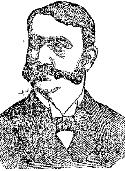 W
WAlexandros Skouzes was a Greek politician who served several times as Minister for Foreign Affairs of the Kingdom of Greece.
 W
WSophia of Prussia was Queen consort of the Hellenes during 1913–1917 and 1920–1922.
 W
WPrincess Sophie of Greece and Denmark was the fourth child and youngest daughter of Prince Andrew of Greece and Denmark and Princess Alice of Battenberg. The Duke of Edinburgh is her younger brother. Sophie was born at the villa Mon Repos on the island of Corfu in Greece.
 W
WNapoleon Soukatzidis was a Greek communist, trade unionist and one of the 200 prisoners executed at the firing range of the Athens suburb of Kaisariani by the Nazi occupation forces on May 1, 1944.
 W
WPetros Soumilas or Soumilis was a Greek Army officer who reached the rank of lieutenant general.
 W
WNikolaos Tsipouras was a Hellenic Army officer who fought in the Macedonian Struggle, the Balkan Wars, the struggle for Northern Epirote autonomy, World War I and the Asia Minor Campaign, retiring as a major general.
 W
WVlasios Tsirogiannis was a Hellenic Army officer who rose to the rank of Lieutenant General.
 W
WChristos Tsolakopoulos was a Hellenic Army officer. Tsolakopoulos was born on 1 January 1868 in Nafplio. He enlisted in the Hellenic Army as a volunteer on 15 August 1886, and became an NCO. While a student at the NCO School, he participated in the Greco-Turkish War of 1897. On 9 August 1899 he graduated from the NCO School as an Infantry 2nd Lieutenant. In 1905, during the early stages of the Macedonian Struggle, he led an armed band in the area of Morihovo with the nom de guerre of Kapetan Rembelos.
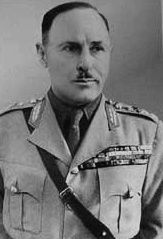 W
WKonstantinos Ventiris was a Greek Army officer who rose to the rank of lieutenant general. He served twice as Chief of the Hellenic Army General Staff and was one of the senior government commanders during the Greek Civil War. He is also one of the few recipients the country's highest wartime decoration, the Commander's Cross of the Cross of Valour.
 W
WGonos Yotas was a Slavophone Greek Macedonian fighter in the Macedonian Struggle from Plugar, a village near Giannitsa. He was the first cousin of the Bulgarian IMRO band leader voivoda Apostol Petkov. Gonos had been a Bulgarian komitadji for four years, from 1900 till 1904. As his mother was a Patriarchist and he harboured pro-Greek feelings, he deserted the IMRO bands and joined the Greek side in October 1904, entering the service of the Greek consulate of Thessaloniki in 1905. He was active in the area of Giannitsa, beginning his action in October 1904, initially as a guide in the marshes of Lake Giannitsa. He helped return 6 villages from the Bulgarian Exarchate to the allegiance of the Ecumenical Patriarchate of Constantinople. In March 1905, he joined the first well-organized Greek military group. Next year, he cooperated with Tellos Agras, achieving great successes. From 1908, he started to act with his own military group, in the end of the same year he sheltered in Athens. He was killed in a battle with the Ottoman army at the lake of Giannitsa on 12 February 1911, after a betrayal.